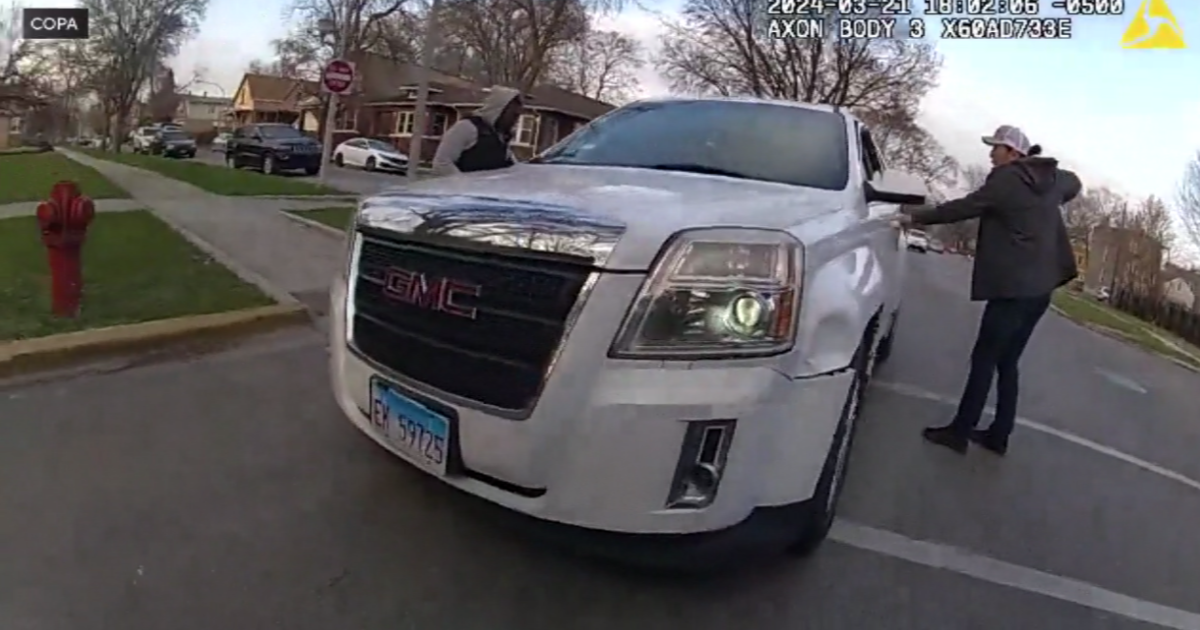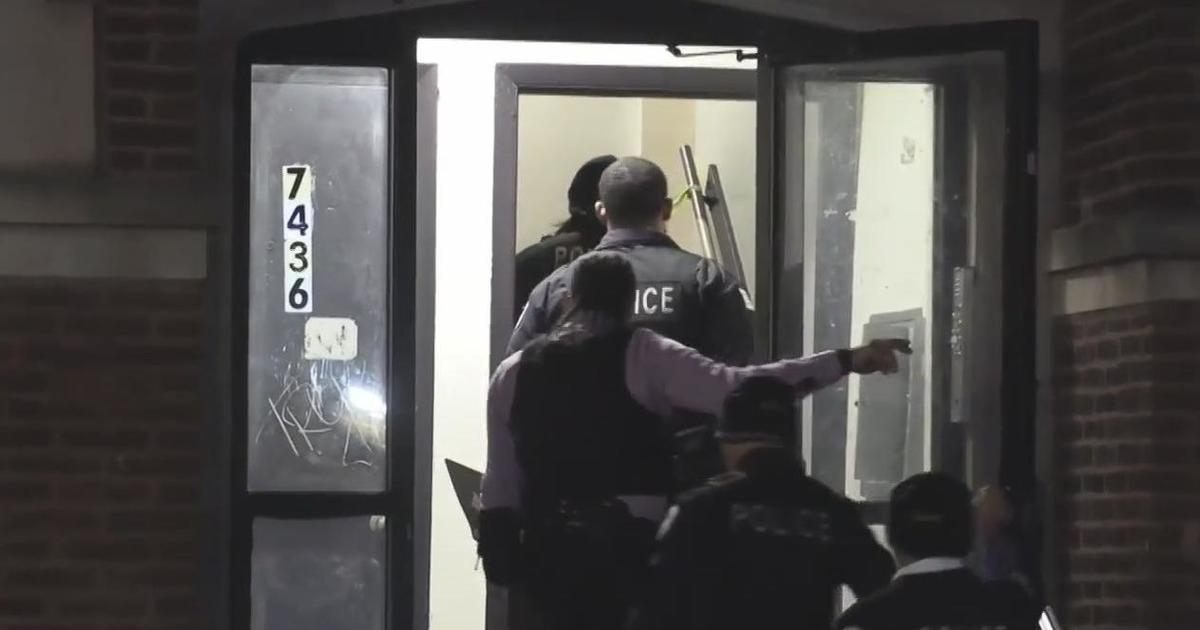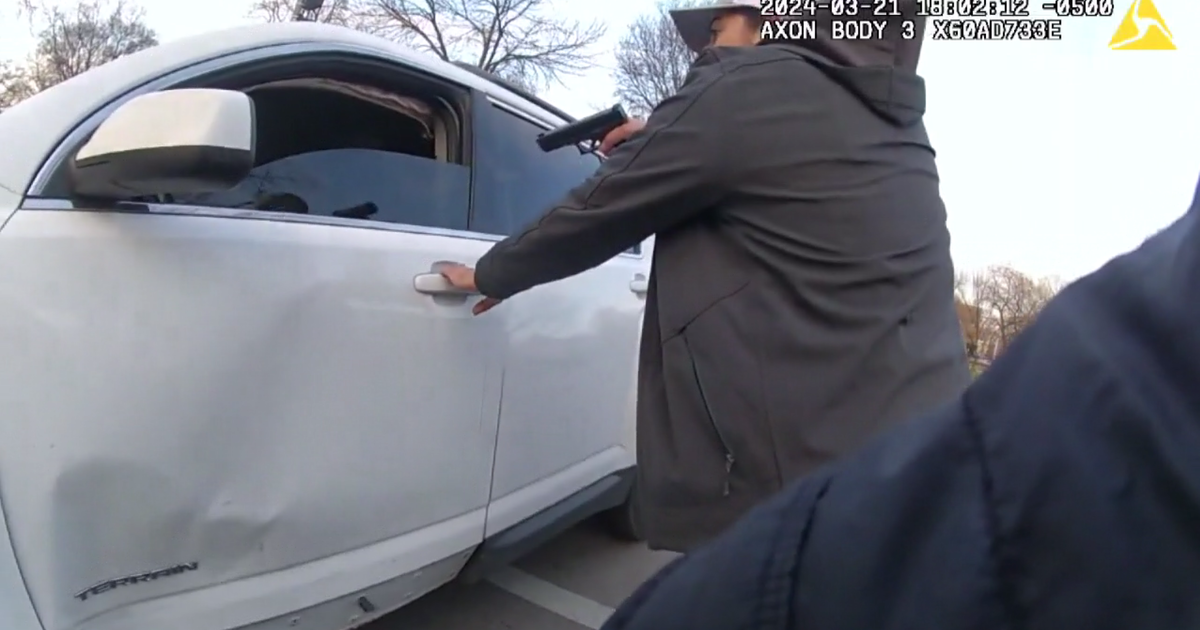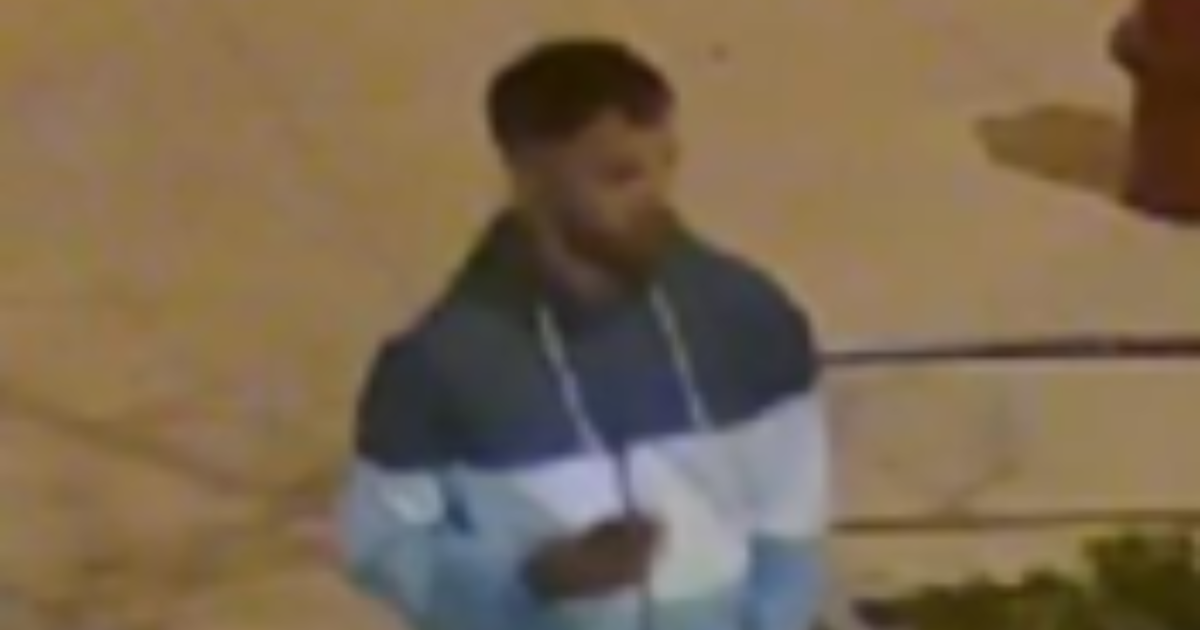Another Family Files Lawsuit After Chicago Police Raid Wrong Home, Point Guns at 4-Year-Old
By Samah Assad, Dave Savini; web producer Todd Feurer contributed to this report.
CHICAGO (CBS) -- Another family who said they are traumatized after Chicago Police wrongly raided their home and pointed guns at them is suing the city.
Attorney Al Hofeld, Jr. represents the Lyons family and filed a federal lawsuit on their behalf Thursday morning. The complaint alleges excessive force and violations of the police department's new search warrant policy.
There have now been more than a dozen wrong raids lawsuits filed in the cases CBS 2 Investigators uncovered over the last two years. Hofeld has filed nine of those lawsuits on behalf of families who were the victims of wrong raids.
"These children whom I represent are just the tip of the iceberg. They represent a long-standing – a decades-long-standing – silent mass trauma to kids of color across Chicago," he said Thursday.
[scribd id=465278273 key=key-rxWuQvnXOFrgBCAJoJZm mode=scroll]
CBS 2 first reported the wrong raid on the Lyons home Wednesday. The report and data analysis also revealed alarming racial disparities about where Chicago Police officers execute search warrants the most. From 2016 to 2019, the majority of search warrants were executed in Black and Latino communities. In many of these cases, police did not make any arrests or recover property.
That's what Sharon Lyons said happened to her family on Feb. 26 at her home in Back of the Yards. She said officers burst into her home with guns drawn and pointed guns at her and her 4-year-old granddaughter, Lillie.
"They had the guns pointed at me, telling me to get down," Sharon said. "I got down. I keep asking them, 'What's going on? Please tell me what's going on.' I've never been through nothing like this. They just kept saying they had a search warrant."
Sharon said, even though the warrant was not a "no-knock" warrant, officers did not knock on her door, and did not identify themselves as police when they broke down her door.
"If they would've knocked on my door, I would've let them in," she said.
Hofeld said Sharon told officers Lillie was napping in the bedroom when police broke into the home, but they still pointed their guns at the little girl, and left her alone in the bedroom, screaming, for about 30 minutes without an adult to console her.
During the raid, officers also pointed a gun at Sharon's 35-year-old son, James, as he was lying facedown on the floor, and Hofeld said one officer pressed his knee hard into James' back and neck.
"James said in February, long before George Floyd, 'I can't breathe. I thought I was going to die,'" Hofeld said.
Hofeld said officers also traumatized Lyons' autistic 30-year-old son, Julius, by pointing guns at him during the raid, even though Sharon told them Julius is severely autistic.
"He cannot handle stress. He became hysterical. He had no idea what was happening at all times. Officers' guns were loaded, with their fingers around the triggers when they were pointing guns at the family," Hofeld said.
Sharon said she and her family are still traumatized to this day.
"I would just like to say February the 26th, my life was normal. I had no depression, I had no worries. I wouldn't let a soul bother me. I was comfortable in my house. I would leave my door open anytime," she said. "I feel like I've been violated. It hurt me and it still hurts me to this day that they wouldn't let me get my granddaughter."
According to the complaint for search warrant, police were looking for a person officers only knew by the name of "Blondie." A paid confidential informant told police they saw "Blondie" selling heroin at the family's address, records show. In these documents police described the target as "a black transgendered woman" with a "medium length blonde wig," who weighs 150 pounds and is between 5 foot 7 inches and 5 foot 9 inches tall.
However, Hofeld said police failed to verify the information supplied by the informant before the raid, and claimed their warrant was not approved by a lieutenant beforehand, as required.
Other than driving the informant past the building, police documents show they did not take any additional steps to independently verify the informant's tip, such as surveillance, property records checks, or any other research. That, despite police's commitments to more training and oversight on the process with its new policy just one month earlier.
However, Hofeld said the new policy is still insufficient.
"It meant nothing, because it is so profoundly vague that no officer could have any idea as to how to comply," he said.
Hofeld said none of the 16 plainclothes officers who conducted the raid of the Lyons home was wearing a body camera. Patrol officers wearing body cameras did not enter the apartment until near the end of the raid, despite the new CPD policy requiring at least two patrol officers with body cameras to go in as any search warrant is being executed.
"You've got to have the body cameras there in order for there to be any accountability of what these officers are doing in the first crucial few seconds of a search warrant execution," Hofeld said.
The officers who conducted the raid were wearing masks covering most of their faces, and Hofeld said the department has refused to identify most of them.
CBS 2's analysis also found the officer who swore out the warrant for the raid is ranked among the top 12 in the department for "negative raids," meaning no contraband was found, and the target of the raid was not located. The warrant in the Lyons case did not name a specific target.
Sharon said it's frustrating to know that officer has been responsible for so many "negative raids."
"He's nothing but trouble, and my heart goes out to those families that been through the same thing that I have been," she said. "I just want justice, and I just want them – the Police Department – to do a better job at training their officers when they enter people's homes."
The department's search warrant policy changes were prompted by CBS 2's ongoing investigation that revealed officers repeatedly failing to independently verify tips. They then raided the wrong homes and traumatized innocent families -- the subject of a CBS 2 documentary, "[un]warranted."
"The way I feel and what I'm going through right now, I feel their pain," Sharon said. "I know what they've been through because I've been through the same thing. I can't sleep at night."
Hofeld said police did not find anything during their raid, and did not apologize to the family after realizing they'd broken into the wrong home.
"The terror and stress inflicted on this innocent family was all for nothing. Officers found nothing illegal. They found no contraband of any kind, and they arrested no one," Hofeld said. "In other words, this was yet another bad search warrant by Chicago police who traumatized yet another innocent law-abiding family of color, and eroded their trust in CPD."
CBS 2's reporting found the police department does not have a mechanism to track wrong raids. There is also no indication the department disciplined officers involved in any of the incidents we uncovered. In an interview, newly appointed Supt. David Brown said he plans to put a system in place to document them. Police have not yet provided specifics on what tracking that would look like.
Hofeld said CPD needs to enact a policy with specific requirements so offices know what to do and what not to do when executing a search warrant, particularly to refrain from pointing guns at children. He also said the department's search warrant policy needs to carry real consequences for officers who break the rules.
"How many more innocent children of color in Chicago have to be traumatized by the police? If community police trust is going to be anything more than an idea, then implement real protections for the community's children now," Hofeld said. "Give officers a policy and give them training that prohibits specific behavior with respect to children, such as pointing guns at them at point blank range; and mandates that officers follow specific procedures for protecting children."
Chicago Police Supt. David Brown declined to comment on the Lyons family's lawsuit Thursday afternoon at an unrelated press conference, saying only that he would review the case.



